The Cepac process—
When it comes to creating the ultimate packaging solution for hazardous goods, you can count on Cepac to provide a best-in-class service! With our six-stage process for creating corrugated packaging to United Nations standards, you can guarantee your goods will arrive safely and securely.
U.N. Packaging is a complex area with no room for interpretation. Everything we do at Cepac is engineered to meet a specific requirement, which in the case of U.N. Packaging, is a legal requirement.
At Cepac, each and every new U.N. Certified 4G packaging design goes through a rigorous six-step process.
STEP 1 – PLAN
This first stage is understanding the requirements of the what the packaging must do. Here, we look at the specifics, with Government agencies providing us with guidance and support for each aspect of specification.
We look at all of the standards your packaging must achieve in a test environment, to ensure the highest standards are met.

STEP 2 – DESIGN
For the ultimate corrugated packaging solution, design of the packaging solution is critical. With our in-house team of specialist designers, we model how the packaging solution will protect the goods inside. We can look at how a box will perform, typically involving drop height and stacking tests. When we know the design is right, we move onto the testing stage.
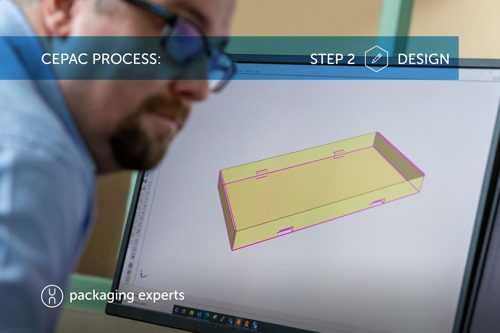
STEP 3 - TEST
Based on the pack design requirements specified, we conduct drop tests on the pack from a required height and orientation (corner, side) to ensure the pack performs to the required standard for the box use. We simulate what happens in a real-world application – for example, what will happen to the contents of a box if the packaging was dropped from a height? Would the box split and allow the container to come into contact with a hard surface? Implications of packaging failure will result in poor performance during transit.
At Cepac we have in-house drop testing equipment in order to ensure the product will perform in consistent and comparable laboratory test conditions.
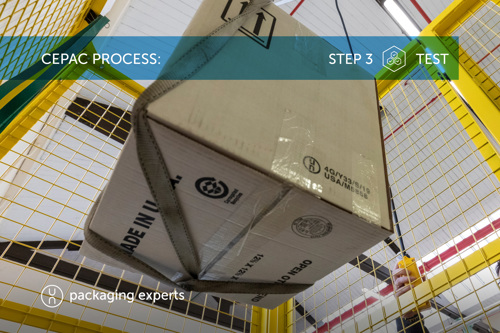
STEP 4 - CERTIFY
When all tests are satisfactorily passed and finalised, a report is submitted to the relevant Government agency for final approval and, subject to acceptance, a unique U.N. number is allocated.
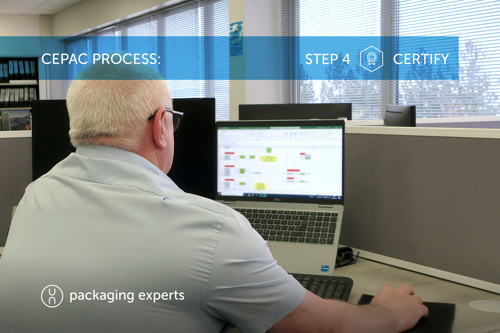
STEP 5 - MANUFACTURE
Corrugated board is reliant upon correctly specified papers and adhesives being used in production. Critical variables must be taken into account throughout the process, as you need to have the optimum board configuration. We test every U.N. Certified box at the point of corrugation to ensure performance meets the required specification, as agreed standards need to be adhered to in order to ensure the safe transportation of dangerous goods.
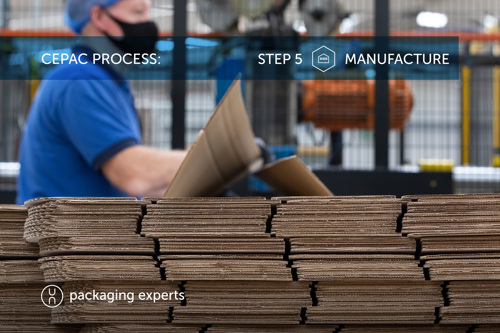
STEP 6 - MAINTAIN
Once a box design has been created, tested, manufactured and used, we still need to ensure it is fit for purpose! We continue to monitor the variables of the box so we can retain the required specifications of a U.N. Certificate. As the manufacturer, we retain documents, certificates and undertake follow-up validations to ensure our solutions remain within the tolerances of U.N. certification and compliance.
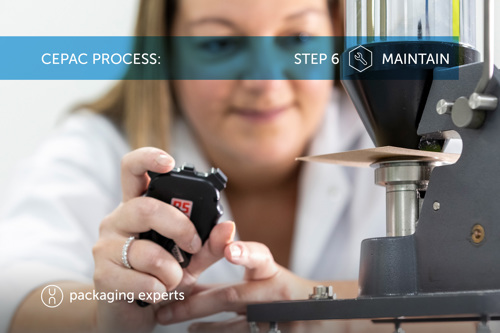
You can trust Cepac to plan, design, test, manufacture, deliver and maintain the ultimate hazardous goods packaging. Come and visit us at Chem UK 2023 Expo, 10 & 11 May at the NEC in Birmingham!
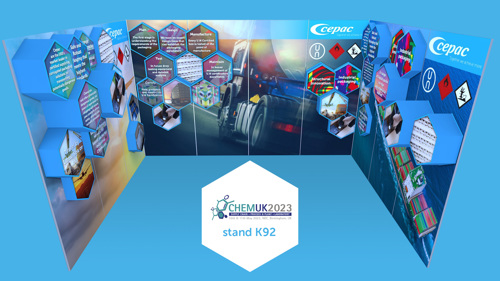
Avoid packaging pitfalls with our dangerous goods video.

This piece was orignially written by by Nigel Hobson, General Manager at Cepac's Rawcliffe site. It first appeared in the BADGP (British Association of Dangerous Goods Professionals) monthly publication.
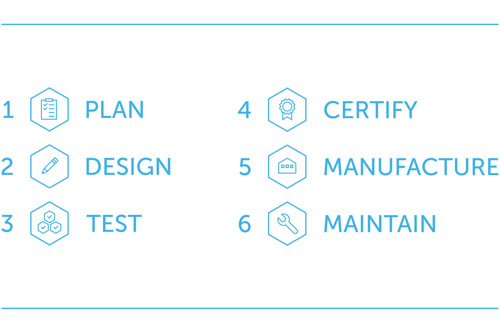
Email: enquiries@cepac.co.uk
More from Cepac on U.N. Packaging